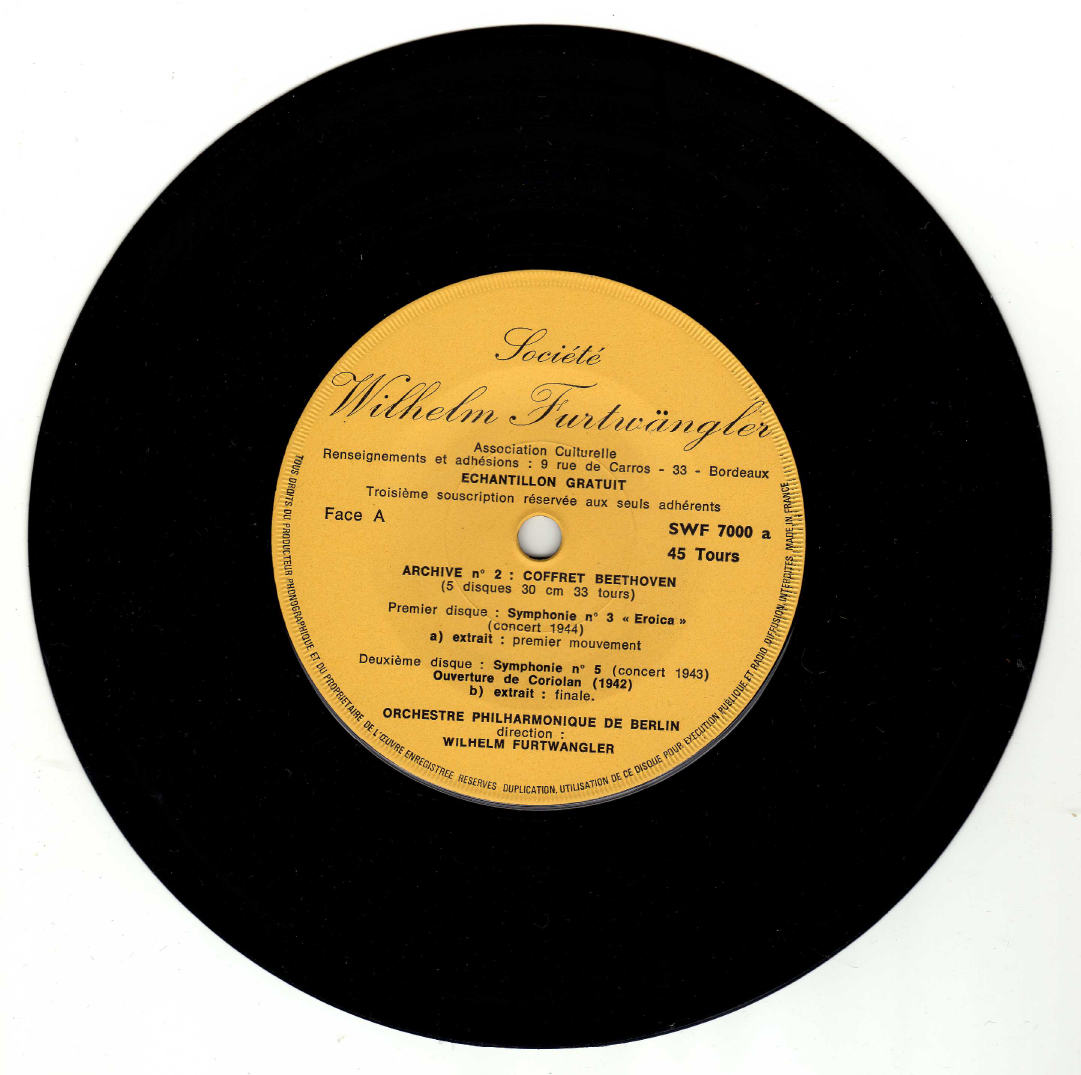News
On 26 February we published — see the news — an article signed by Philippe Jacquard on the set of 22 SCADs issued by the Berliner Philharmoniker. Here is the translation of this article.
Nothing more ‘well-worn’ than this programme. And yet it hides a particular reality: that of a conductor who wants to leave his mark in the midst of the torment.
This poster refers to his return to the podium of his orchestra and his city of Berlin: in 1935 and in 1947. And it is also refers to his participation in the festival of Munich in 1935.
Here is a facsimile of this programme.
From now until the celebrations of the SWF’s fiftieth anniversary, we shall post memories of ‘former greats’ of the association.
1969: Inauguration of the SWF in Bordeaux
Presentation by M. Léon, deputy to the then mayor Jacques Chaban-Delmas. Not a single name pronounced correctly. So:
founder members: J.P. Brenchenmüècher instead of Brechenmacher, Henri-Jean Cestas instead of Testas, and inevitably Sam Abraham instead of Sami Habra.
Next came the reading of the list of honorary members, in alphabetic order:
Karl Bohême for Karl Boehm; Pierre Boulet for Pierre Boulez; Germaine Lupin (grand-daughter of the fictional detective Arsène?) for Lubin; Quel Empereur for Otto Klemperer, and so on and so on. When it came to Hans Schmidt-Isserstedt, everyone was waiting with a broad smile to see how M. Léon would manage that tongue-twister, but the joke was in fact on all of us, as the presenter concluded his list by declaring astutely: “as well as many other famous musicians”!
This remark was greeted by a huge burst of laughter that surprised the presenter.
Sami Habra
We are not going to present the song popularised by Liza Minnelli, rather to recall that Furtwängler was there three seasons running conducting the Philharmonic Orchestra: 75 concerts!
The archives are available and well deserve being looked at more closely. If one of our members, a citizen of the USA, would like to undertake the task…
The point is, there is a lot to do. If you visit the official site of the Orchestra and go to the page devoted to musical directors, you will learn that in 1928 Toscanini succeeded Mengelberg, who had followed Stransky in 1922. And Furtwängler somewhere in the middle? He does not seem to be present. That led us to exchange a few emails with the curator of the archives. If the documents available for consultation seem to place Mengelberg and Furtwängler on the same level, it is nonetheless the case that the latter cannot be considered as having been (co-) musical director of the NYPO: no responsibility with regard to recruitment or the selection of tours, for example. Let it be noted!
To be true we know that Furtwängler’s time in New York resulted in a series of missed opportunities, and a big clash of political origin; yet even so, to treat a musician of the stature of Furtwängler as just another guest conductor betrays a certain degree of bad faith, clearly apparent since 1927, well before History intervened.
As we wait for a study, let us be satisfied with the only photo (Evening Post) of our conductor in the Carnegie Hall. It is 1926, during a rehearsal.

In view of some questions, here are some details about the fundraising via Kisskissbankbank.
Any money paid gives rise to a counterpart.
During the fundraising operation, the sums paid are frozen.
If the €2,500 target is not met, the amounts already collected are immediately refunded to donors.
If the target is met or exceeded, counterparts are sent before October 19, and donors—at least French—can deduct 60% of the amount from their taxes.
As we announced a few weeks ago, the 19 October next will be our ‘Fiftieth Anniversary Day’, with notably a concert of chamber music, for which we have invited the Varian Fry Quartet, comprising young members of the Berlin Philharmonic.
As you can easily imagine the organisation of such an event is complex, and a heavy financial burden.
Consequently we have decided to resort to participatory- or crowd-funding, using the Kisskissbankbank platform. As you will see if you consult the site or the list below, in exchange for participation, we will give donors discs, and also concert seats or free membership (re)subscriptions.
We are examining the possibility of recording the concert and subsequently making it available for streaming, solely for our members.
As a fiftieth anniversary comes but once, this is a unique opportunity for requesting your collaboration and for counting on your generosity.
In advance, the management team thanks you for your support, whatever it may be.
https://www.kisskissbankbank.com/fr/projects/cinquantenaire-de-la-societe-wilhelm-furtwangler
- For 5 € and more: SWF thanks and registration of your name in the concert program and on the SWF website
- For 10 € and more: the same as for 5€ + sampler ‘4th Symphony’ of Beethoven published by the SWF
- For 20 € and more: the same as for 10€ + SWF 961-2 (Furtwängler in Lucerne)
- For 30 € and more: the same as for 20€ + SWF931 (Furtwängler in Stuttgart)
- For 50 € and more: the same as for 30€ + digipak SWF ’special 50th anniversary’
- For 70 € and more: the same as for 50 € + 2 tickets for the concert or 1 year membership
- For 100 € and more: the same as for 70 € + SWF 121-3 (Don Giovanni)
- For 125 € and more: the same as for 100 € + SWF 81-4 (Meistersinger set)
- For 150 € and more: the same as for 125 € + book ‘Gerard Gefen’
- For 200 € and more: the same as for 150 € + book ‘Elisabeth Furtwängler’

Some people already know about it: the Berliner Philharmoniker has just published a box-set of 22 SACD (CD compatible), that includes the totality of the Orchestra’s radio recordings from 1939 to 1945.
Work on the sound has been phenomenal and the editorial work no less, with a veritable book (German and English) that features a rich iconography.
Of course, we already knew everything… well, almost! You will discover two special and hitherto unreleased documents: an extract of the first suite of Daphnis et Chloé from March 1944 and the whole of Schubert’s Eighth, also of 1944. However, the main thing to notice is the encyclopaedic aspect.
This luxurious set is available at a price of 229 € (+ postage) on the website of the Berliner:
https://www.berliner-philharmoniker-recordings.com/radio-recordings.html
The Berlin Philharmonic Orchestra accords members of the SWF a reduction of 10% (i.e. 22.90€!), by using a specific ‘promo’ code to be entered when the order is made. Since this code is reserved for members, we shall email it to you on demand from boutique@furtwangler.fr
So, take advantage of this if you are already a member, and if you are not so far, take into account that the reduction corresponds to the membership fee… true it is that Christmas is over, but Easter is just round the corner…
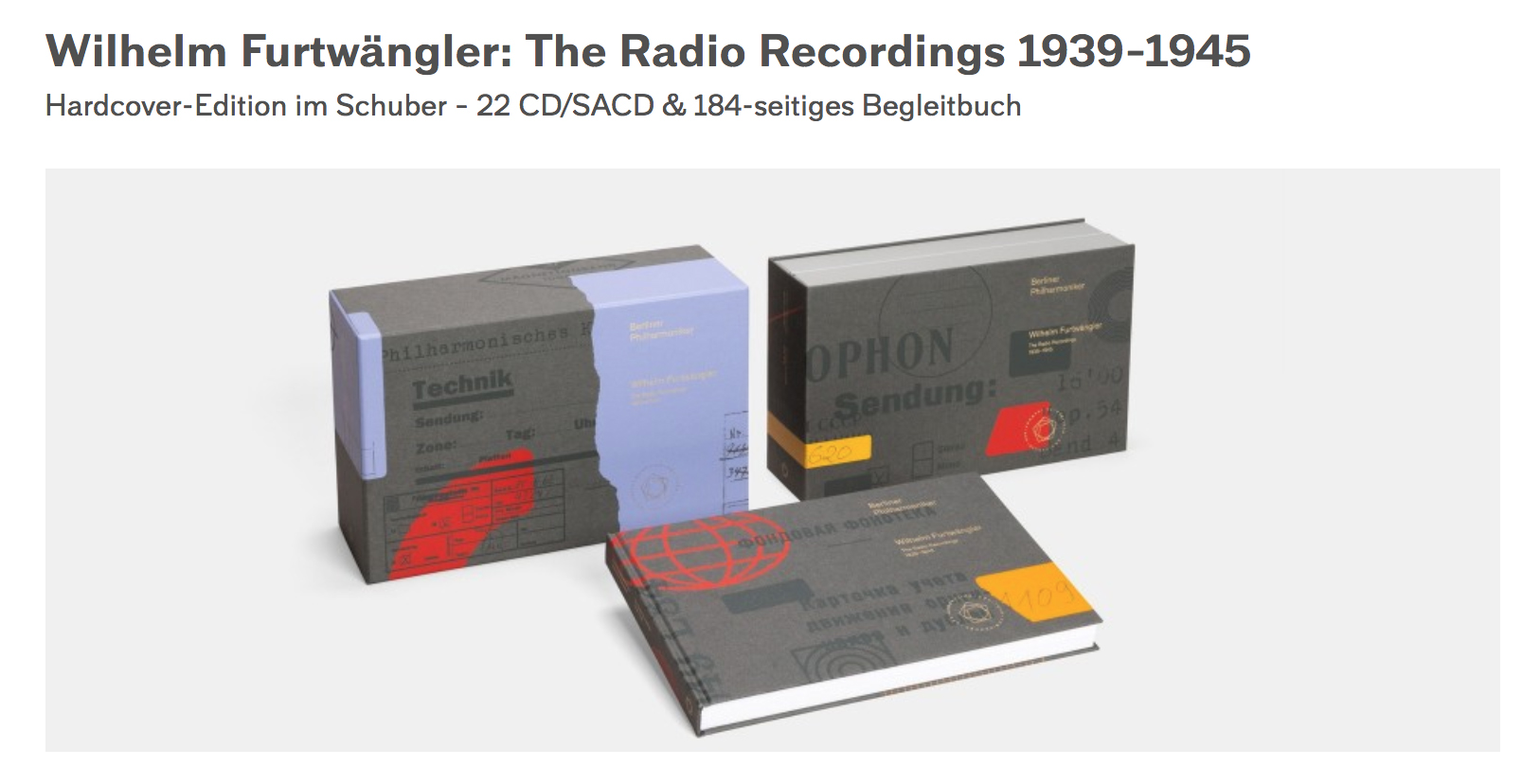
As promised, The Magic Flute of Salzburg 1951 is back!
Since this morning it is available to download from our shop, and in high definition. In other words, for those who have made the effort to be so equipped, the added sound value is well and truly real. That said, the download is also possible in CD quality.
The price is 16€ (the equivalent of 2 1/2 CDs…).
Accompanied by an impressive booklet with lots of illustrations (in French and in English), this recording enables us to relive a unique evening, with Furtwängler’s performance, yet also the atmosphere: you would think you were there!
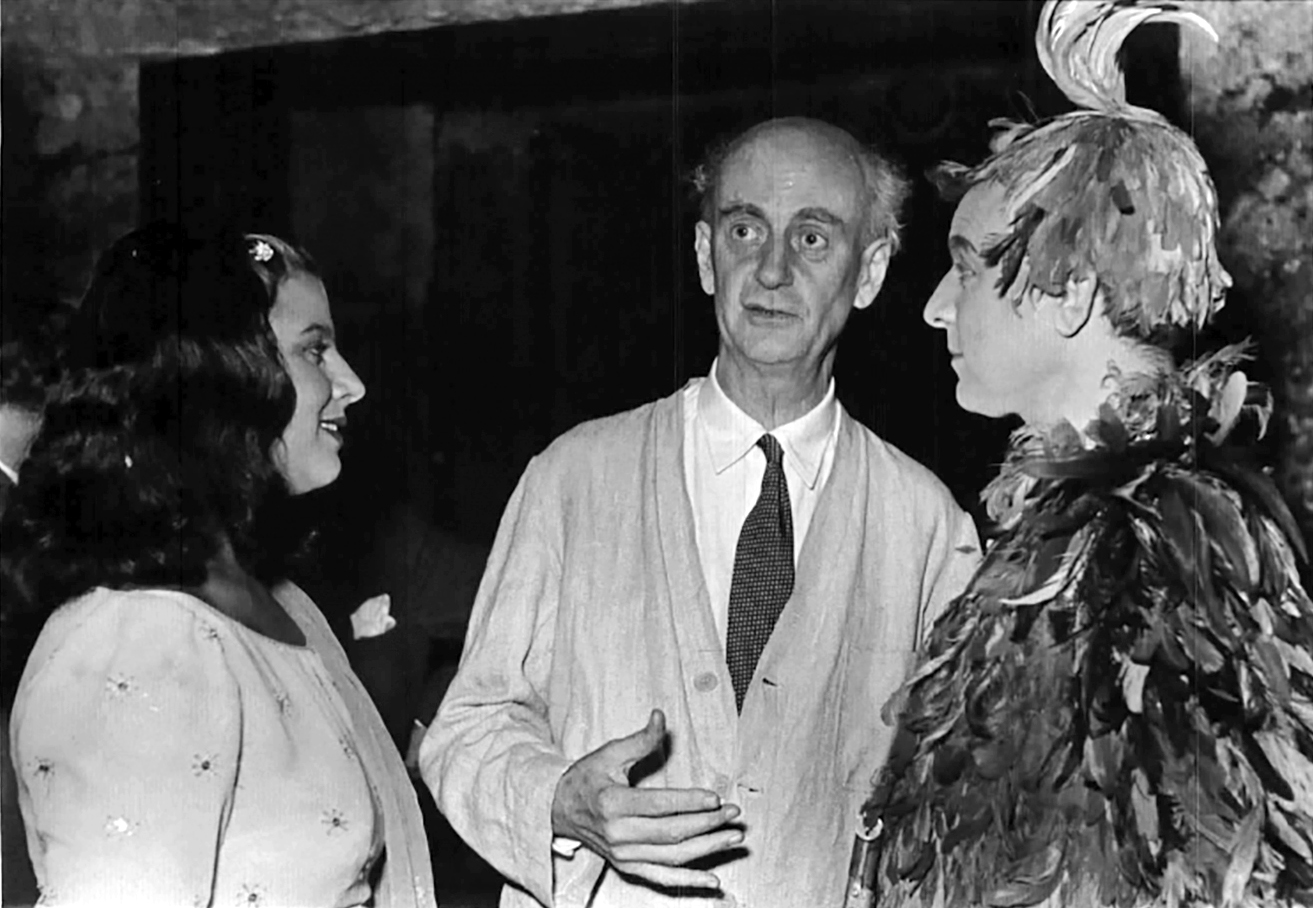
For very many years now the SWF has been publishing ‘studies’. Because, in the past, they were printed and addressed to members at the same time as other news items, they were modestly called 'circulars', whereas in fact their scope, their importance and the permanence of their publication makes them hard to be considered as mere information bulletins for the members of the association.
These studies have increased in number and in variety, and a good many have been republished in a new digital format. As members are not always aware of the riches they represent, here, quite simply, is a catalogue of these recent studies, and bear in mind that older studies will soon acquire a similar lustre!

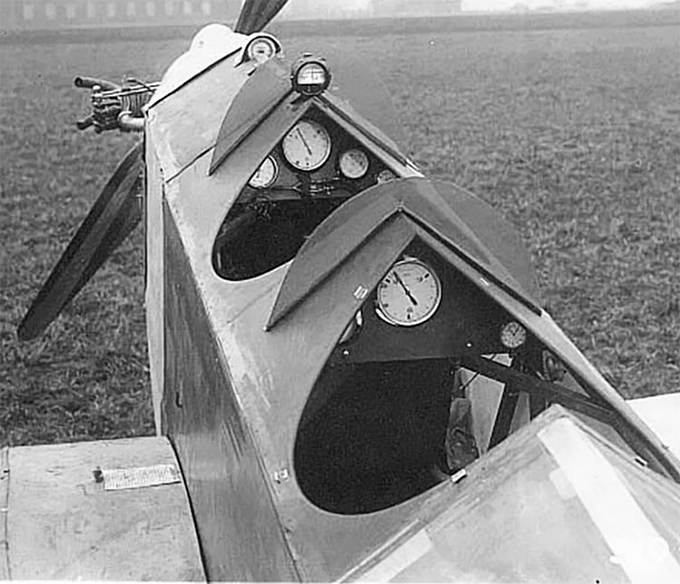
Bayreuth 1931 welcomed Furtwängler for the first time and it was also the first time, after lengthy negotiations with the Festival, that the radio broadcast a performance live: Tristan und Isolde.
We were almost deprived of all that and even of Furtwängler himself for ever.
For a reason that escapes us, and in order to get to Bayreuth from Berlin on Sunday 14 June — the rehearsals beginning there on the fifteenth — he accepted the invitation of an acquaintance to go there by plane. Not a passenger aircraft, there were hardly any at that time, no: a sports plane, a Daimler-Klemm L20, a two-seater, bearing the registration number D-609, one similar to that in the photograph below.
The only problem was that the pilot, at about 6 pm, wanting to make a stopover to refuel, mistook the airport of Halle-Nietleben for that of Halle-Leipzig, badly calculated his descent and took a nose dive into a field of rye. The plane was overturned, and Furtwängler (as Elisabeth told the author of this note), as a good sportsman, curled up into a ball in the cabin. More scared than hurt: the plane was ready for the scrapheap, yet Furtwängler and the pilot were unharmed, and the conductor was free to continue on his way with what was a safer mode of transportation at the time: the train.
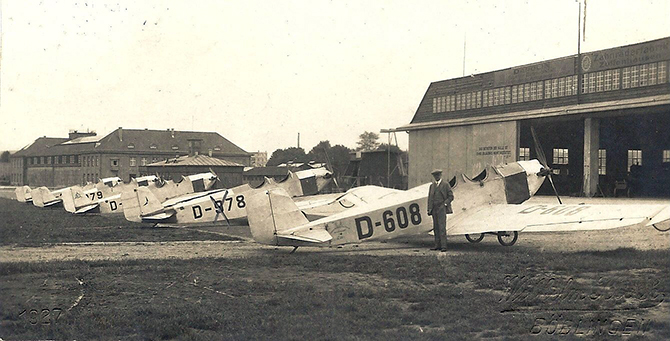
The concert of 27 January 1952 was an "all Brahms" programme, with the Double Concerto featuring two soloists of the Vienna Philharmonic.
We already have the sound — the concert was recorded in full; we have a letter from Furtwängler —see the circular—; now we present the facsimile of the programme, and three press clippings for good measure.
Only the SWF makes such documents available!

From now until the celebrations of the SWF’s fiftieth anniversary, we shall from time to time post memories of ‘former greats’ of the association. We start the series with Daniel Cordova.
Eroica for ever
The performances I had known of the Eroica symphony before I joined the newly-formed Furtwängler Society were really few and far between. My late father possessed old 78s of the London Philharmonic version conducted by Serge Koussevitzky, and I remember that, when I was a child, I preferred listening to those of the 2nd Symphony (still of Beethoven) by the same orchestra, yet conducted by Thomas Beecham.
In hindsight I think that this was perhaps not just because the latter used up fewer records than the former…
Indeed, shortly after the birth of the Society — which I had joined principally to be able to re-listen to Furtwängler conducting Brahms’ 4th Symphony, the recording of which was quite unobtainable at the time — the Society had distributed to its members as a ‘preview’ a 17cm long-playing record of (necessarily) short extracts of the recording of this Eroica Symphony as performed by the Vienna Philharmonic Orchestra conducted by Furtwängler in 1944. WHAT A SHOCK! I had certainly not waited till then to think of Furtwängler as a truly great performer – there were three or four records of his in my father’s collection. I noticed with this sample that a performer of this calibre could totally change the point of view I could have concerning a work I had listened to a thousand times. Like his fans, I listened to this sampler-record in a loop for weeks on end… and as I am pathologically conservative, I still have it!
Daniel Cordova
